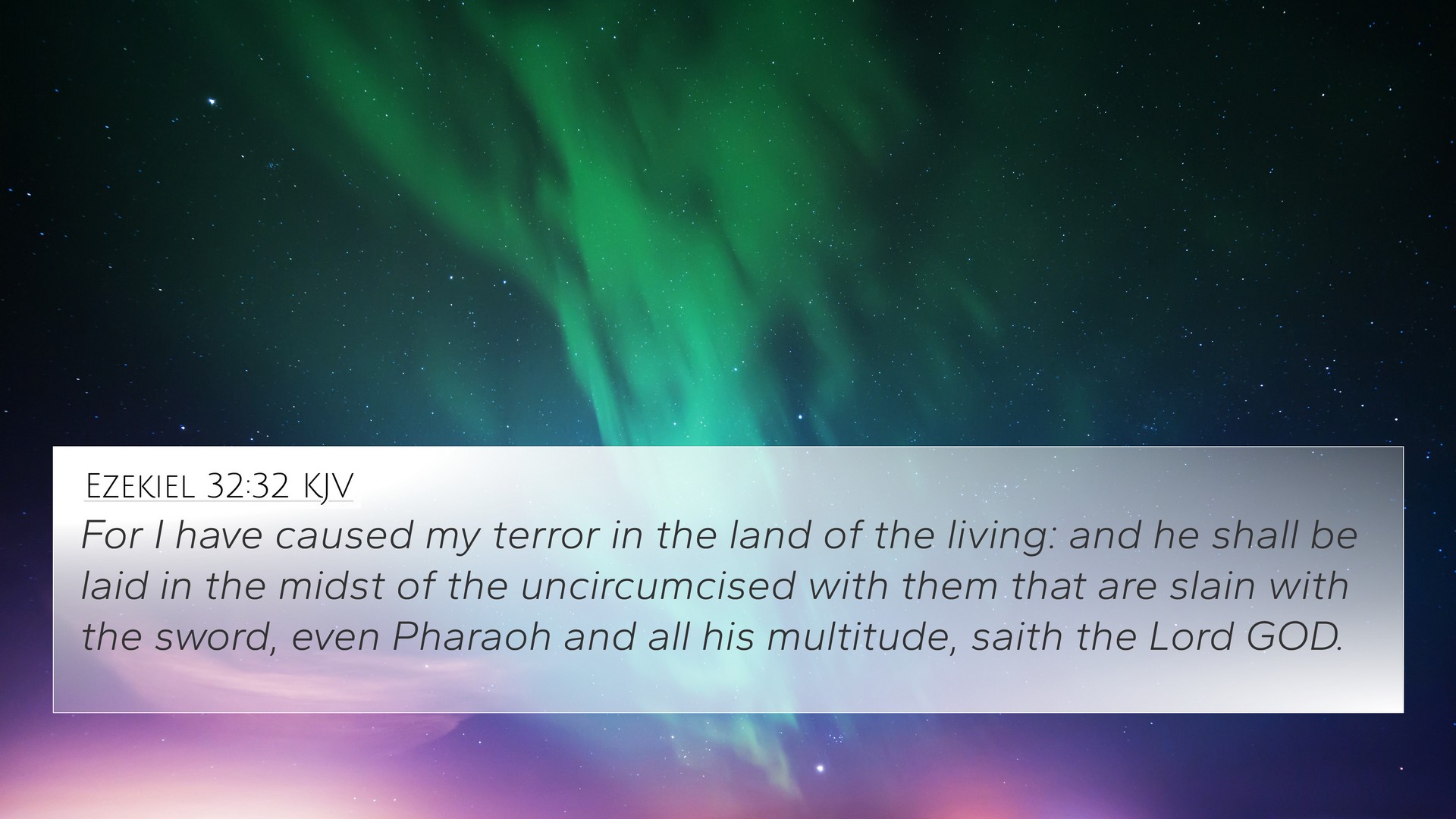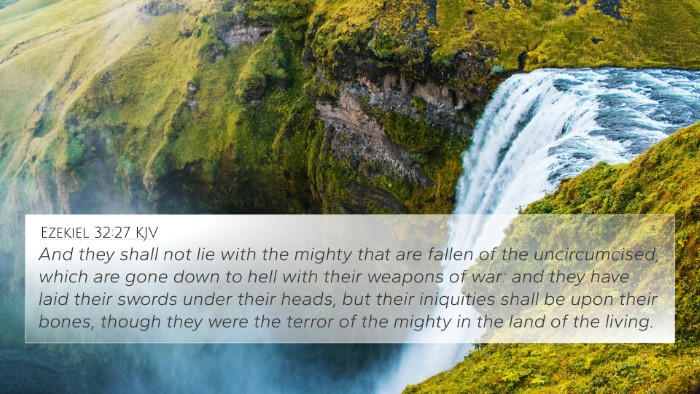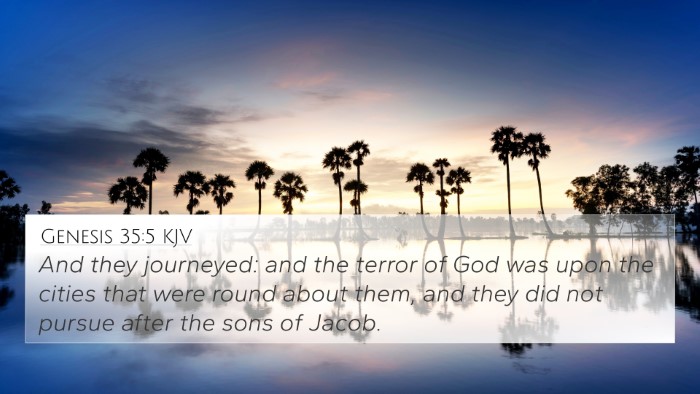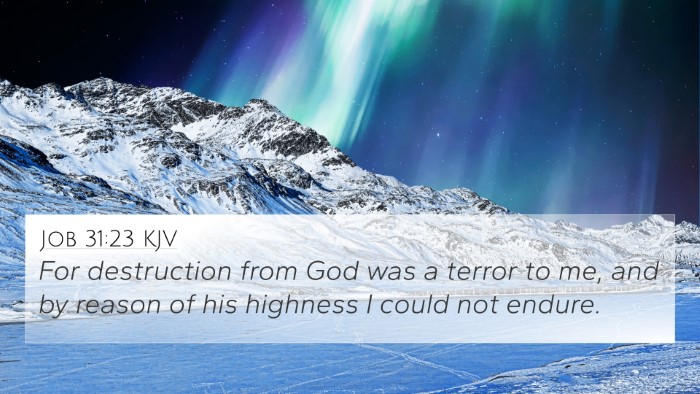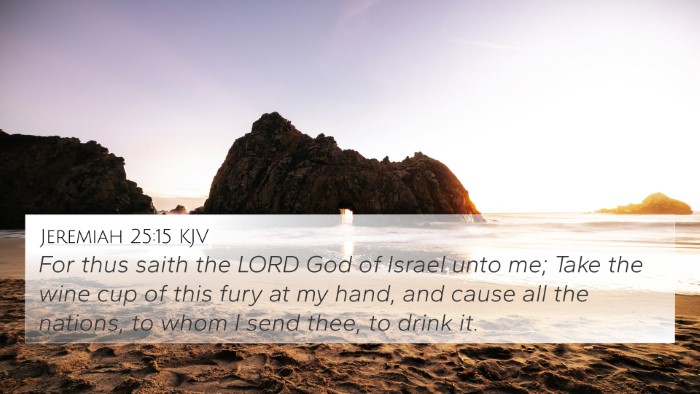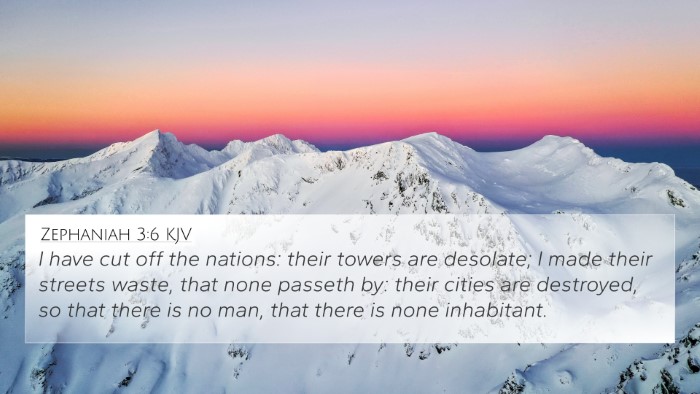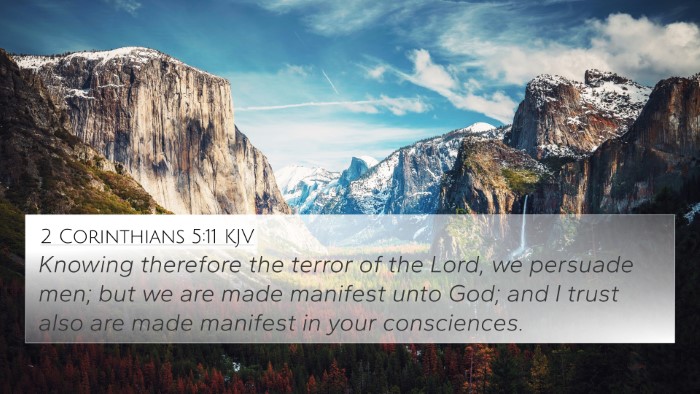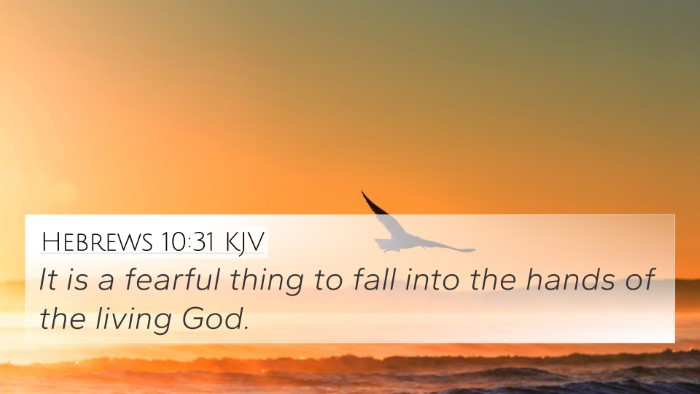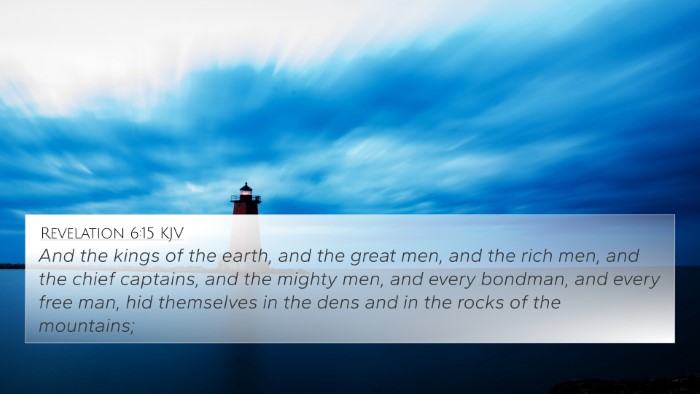Ezekiel 32:32 - Summarized Meaning and Interpretations
Ezekiel 32:32 states: "For I have caused my terror in the land of the living; and he shall be laid in the midst of the uncircumcised with those that are slain by the sword, even Pharaoh and all his multitude, saith the Lord GOD."
This verse fits into the broader theme of God's judgment against nations, specifically focusing on Pharaoh of Egypt. The prophetic imagery used by Ezekiel illustrates the consequences of pride and disobedience to God, which places Pharaoh among those who face death—a fate shared with the uncircumcised.
Context and Analysis
Ezekiel, a prophet during the Babylonian exile, emphasizes that Pharaoh, despite his status, will not escape the ultimate judgment of God. The phrase "terror in the land of the living" signifies God's sovereignty and ability to instill fear among the nations.
Key Insights from Commentaries
-
Matthew Henry: Henry suggests that this verse highlights the power of God over nations, illustrating that even the kings of the earth are subject to His will. Pharaoh's vanity and belief in his invulnerability are shattered by the inevitability of death and judgment.
-
Albert Barnes: Barnes emphasizes that God's judgment extends beyond mere physical death. He connects this fate of Pharaoh with the ultimate separation from God, illustrating the spiritual implications of being laid amongst the uncircumcised—those outside the covenant of God.
-
Adam Clarke: Clarke points out that Ezekiel’s message serves not only as a warning to the Egyptians but also to Israel, reminding them that no one, not even the mighty Pharaoh, is exempt from divine judgment. His commentary reflects on how this serves as a call to humility and trust in God's plan.
Cross-References to Ezekiel 32:32
This verse can be linked to several other biblical texts, illustrating the theme of divine judgment and the ultimate fate of the proud:
- Isaiah 14:9-11: Describes the descent of the proud into Sheol, a parallel to Pharaoh's fate.
- Ezekiel 30:24: Discusses God's judgment against Egypt, setting the stage for Pharaoh's downfall.
- Jeremiah 46:25-26: Similar themes of judgment against Egypt can be found here.
- Revelation 20:10: The eternal judgment parallels the concept of death and separation from God.
- Proverbs 16:18: States that pride precedes destruction, resonating with the fate of Pharaoh.
- Psalm 37:20: Indicates the fate of the wicked, which correlates with the fate of Pharaoh.
- Romans 14:11: Every knee shall bow reflects God’s ultimate authority over all nations.
- Luke 16:22-24: The rich man and the poor man's fate illustrates similar consequences of one's life choices.
- Matthew 5:5: Blessed are the meek, a contrast to Pharaoh’s pride and eventual judgment.
- Hebrews 9:27: It is appointed for men to die once, reflecting the universal reality of death and judgment, applying to all, including rulers.
Thematic Connections and Implications
The themes of judgment, humility, and obedience to God are prevalent in this verse and its cross-references. Ezekiel 32:32 acts as a crucial reminder to readers about the consequences of opposing God's will.
Tools for Cross-Referencing
For those interested in exploring these connections further, consider engaging with:
- Bible Concordance: Useful for finding specific verses related to themes of judgment.
- Bible Cross-Reference Guide: A resource for identifying connections between different biblical texts.
- Bible Cross-Reference System: Systems that categorize verses according to their themes.
- Bible Chain References: Follow a sequence of related verses throughout scripture.
- Online Bible Study Tools: Many platforms offer easy navigation between cross-references.
